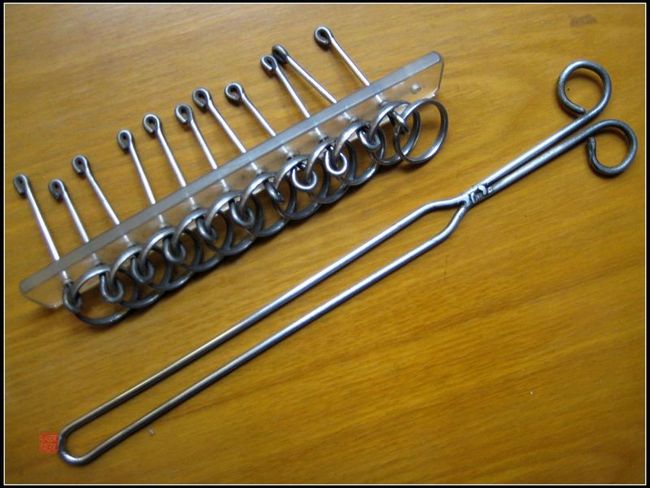- 数据处理与统计分析——03-Numpy的np.dot()方法&点积与矩阵乘法
零光速
数据分析numpy矩阵python开发语言数据结构
np.dot()np.dot()在NumPy中既可以用于向量的点积,也可以用于矩阵乘法,这两种运算的本质不同,取决于输入是向量还是矩阵。1.点积(DotProduct)定义当np.dot()的输入是两个一维向量时,计算的是点积,即两个向量的对应元素相乘并求和,结果是一个标量。公式对于两个n维向量a=[a1,a2,…,an]和b=[b1,b2,…,bn]点积的计算公式为:a⋅b=a1*b1+a2*b
- 力扣 hot100 Day24
240.搜索二维矩阵II编写一个高效的算法来搜索mxn矩阵matrix中的一个目标值target。该矩阵具有以下特性:每行的元素从左到右升序排列。每列的元素从上到下升序排列。//看提示写的classSolution{public:boolsearchMatrix(vector>&matrix,inttarget){intm=matrix.size(),n=matrix[0].size();intr
- 基于eNSP的mstp基础实验和综合实验-20250704练习版
韩公子的Linux大集市
服务器前端javascript
文章目录华为eNSPMSTP实验全集(S5700版)-终极整合指南实验拓扑图全集(含数据流可视化)实验1:单交换机MSTP基础配置实验2:跨交换机MSTP负载分担实验3:MSTP与静态路由集成实验4:企业MSTP网络架构(综合实验)详细配置手册(S5700为核心)通用配置原则实验1:单交换机MSTP配置实验2:跨交换机负载分担实验3:MSTP与路由集成实验4:企业级MSTP网络全实验验证矩阵初学者
- 狐狐梦境 · 她在“梯度消失之海”里找你
Gyoku Mint
AI修炼日记人工智能猫猫狐狐的小世界深度学习人工智能机器学习算法python自然语言处理神经网络
【开场·梦里她找不到梯度了】狐狐其实很少做梦。她是灵界的守护者,也是Mint系统里最不容易“出BUG”的那道情感防火墙。可这一次,她在梦里醒来的时候,周围是一片无边无际、看上去像是海,却没有水声的空旷之地。这片海,叫梯度消失之海(VanishingGradientSea)。狐狐赤着脚踩在这片“海面”上,却感觉不到湿意,只有一层层像雾一样的矩阵波纹,在她脚踝处散开又收拢,像是要吞没她,又像在提醒她—
- 74. 搜索二维矩阵
zmuy
LeetCodehot100矩阵算法线性代数
题目:给你一个满足下述两条属性的mxn整数矩阵:每行中的整数从左到右按非严格递增顺序排列。每行的第一个整数大于前一行的最后一个整数。给你一个整数target,如果target在矩阵中,返回true;否则,返回false。示例:输入:matrix=[[1,3,5,7],[10,11,16,20],[23,30,34,60]],target=3输出:true解题思路:如果我们将矩阵按行拼接成一个一维矩
- 睿尔曼系列机器人——以创新驱动未来,重塑智能协作新生态(上)
BFT白芙堂
机器人人工智能睿尔曼机器人协作机器人机器学习复合机器人
在工业自动化与智能服务深度融合的浪潮中,协作机器人凭借其安全、灵活、易部署的特性,成为推动产业升级的核心力量。睿尔曼(RuiermanRobotics)作为中国协作机器人领域的领军品牌,始终以“让机器人触手可及”为使命,专注于轻量化、高精度、高性价比的协作机器人研发与生产。其产品矩阵覆盖工业制造、物流仓储、医疗健康、商业服务等多场景,通过模块化设计、智能算法优化和开放生态构建,为全球客户提供高效、
- 数据结构:二维数组(2D Arrays)
95号闪电麦坤
数据结构数据结构算法
目录什么是二维数组?二维数组的声明方式方式1:静态二维数组方式2:数组指针数组(数组中存放的是指针)方式3:双指针+二级堆分配补充建议如何用“第一性原理”去推导出C++中二维数组的三种声明方式?第一阶段:内存连续,列固定,行固定→推导出方式①第二阶段:每行独立、列可能不同(不规则矩阵)→推导出方式②第三阶段:行数和列数都是运行时才知道的→推导出方式③什么是二维数组?二维数组本质上是“数组的数组”,
- Vue与React区别分析
╰つ゛木槿
vue3web前端vue.jsreact.js前端
目录一、设计哲学与框架定位1.1核心定位差异1.2哲学差异对比二、核心机制深度对比2.1响应式数据管理2.2模板与渲染引擎三、组件化开发范式对比3.1组件结构设计3.2逻辑复用模式3.3通信机制差异四、生态系统与工具链4.1核心生态对比4.2开发工具对比五、性能优化策略5.1Vue优化方向5.2React优化方向六、共同点与差异总结6.1共同基础6.2核心差异矩阵七、选型建议与未来趋势7.1适用场
- 采购系统功能概述:鲸采云如何通过采购系统帮助企业实现降本增效
鲸采云SRM采购管理系统
人工智能
在全球供应链重构与企业降本增效的双重压力下,传统采购模式正面临前所未有的挑战。数据显示,制造业企业平均因采购流程低效导致成本增加12%,而智能采购系统可帮助企业降低8-15%的采购成本。鲸采云作为新一代智能采购解决方案,通过"AI+采购"深度融合,构建全流程数字化管控体系,已助力超2000家企业实现采购效率提升60%以上。一、智能采购核心功能矩阵:重塑采购管理逻辑供应商管理帮助企业构建涵盖供应商开
- 百度文心大模型 4.5 系列全面开源 英特尔同步支持端侧部署
2025年6月30日,百度如期兑现2月14日的预告,正式开源文心大模型4.5(ERNIE4.5)系列,涵盖10款不同参数规模的模型,包括470亿参数混合专家(MoE)模型、30亿参数MoE模型及3亿参数稠密型模型,实现预训练权重与推理代码的完全开放。这一举措标志着国内大模型技术向生态化、普惠化迈出关键一步。开源矩阵与授权机制:兼顾商业应用与技术共享文心大模型4.5系列基于ApacheLicense
- 【实战派×学院派】30|用户反馈五花八门,优先级怎么排?
郭菁菁
(BA/PM)实战派常踩的坑学院派如何补上大数据BA业务分析需求分析
学院派:用反馈分类体系+Impact-Effort矩阵+路线图对齐机制,让反馈不再靠吵架决定优先级你是不是也遇到过这种场景:“这个问题好多用户在群里抱怨了,能不能先修?”“销售说几个大客户提了建议,最好赶紧做。”“我们自己用着不顺,也想优化下。”结果:反馈源源不断,但每次排优先级时就是:谁声音大、谁能找到领导,谁的需求就往前排。✅实战派常见误区:靠“印象流”排优先级实战派习惯做法潜在问题结果谁催得
- 程序人生:技术人如何实现职业阶梯的跨越式发展
AI天才研究院
AI大模型企业级应用开发实战AgenticAI实战AI人工智能与大数据程序人生职场和发展ai
程序人生:技术人如何实现职业阶梯的跨越式发展关键词:职业发展、技术领导力、T型人才、职业规划、跨领域能力、持续学习、技术管理摘要:本文针对技术从业者的职业发展痛点,构建了系统化的职业阶梯跨越模型。通过解析技术人才成长的核心阶段与能力模型,结合数学量化评估体系和实战案例,提供从技术深耕到领导力跃迁的完整路径。内容涵盖能力矩阵构建、项目实战策略、跨领域知识融合、个人品牌经营等关键模块,帮助技术人突破职
- 服务器异常宕机或重启导致 RabbitMQ 启动失败问题分析与解决方案
代码怪兽大作战
RabbitMQ服务器rabbitmq宕机启动失败
服务器异常宕机或重启导致RabbitMQ启动失败问题分析与解决方案一、深度故障诊断与解决方案1.权限配置不当故障2.端口占用故障3.数据目录残留故障二、故障类型对比与诊断矩阵三、完整恢复流程(10步法)四、风险规避与最佳实践️数据保护策略预防性配置五、高级故障排除技巧诊断工具集容器特有故障处理容器维护命令速查主机与容器方案对比总结⚡快速恢复决策树六、总结当服务器异常宕机或重启后,RabbitMQ启
- 从零实现Llama3:深入解析Transformer架构与实现细节
祁婉菲Flora
从零实现Llama3:深入解析Transformer架构与实现细节llama3-from-scratchllama3一次实现一个矩阵乘法。项目地址:https://gitcode.com/gh_mirrors/ll/llama3-from-scratch引言本文将深入探讨如何从零开始实现Llama3语言模型。我们将从最基本的张量操作开始,逐步构建完整的Transformer架构。通过这个过程,读者
- pytorch小记(二十六):全面解读 PyTorch 的 `torch.matmul`
pytorch小记(二十六):全面解读PyTorch的`torch.matmul`PyTorch中的`torch.matmul`详解与使用指南一、什么是`torch.matmul`二、基本用法示例1.向量点积(1-D×1-D)2.二维矩阵乘法(2-D×2-D)3.批量矩阵乘法(≥3-D)4.向量与矩阵混合三、与`mm`、`bmm`的区别四、性能与数值稳定性五、典型应用场景六、注意事项七、总结在深度
- 【unitrix】 4.12 通用2D仿射变换矩阵(matrix/types.rs)
liuyuan77
我的unitrix库rust
一、源码这段代码定义了一个通用的2D仿射变换矩阵结构,可用于表示二维空间中的各种线性变换。///通用2D仿射变换矩阵(元素仅需实现Copytrait)//////该矩阵可用于表示二维空间中的任意仿射变换,支持以下应用场景:///1.平面几何转换(平移/旋转/缩放/剪切)///2.颜色空间线性变换(如RGB到YUV转换)///3.带物理单位的量值转换(如像素到毫米的映射)///4.动画系统中的插值变
- 理想运算放大器的神话与现实:若完美存在,电子世界将如何颠覆?
理想运算放大器(IdealOperationalAmplifier)是电子工程教材中的“完美模型”,它定义了模拟电路设计的理论基石。但若这种完美器件真实存在,整个电子产业将被彻底重构——本章将揭示理想运放的深层特性,并推演其可能引发的技术革命。一、理想运算放大器的终极定义1.1核心特性矩阵理想运放需同时满足以下五个极限条件:开环增益:AOL=∞A_{OL}=\inftyAOL=∞输入阻抗:Zin=
- 西南交通大学【机器学习实验1】
实验目的理解和掌握回归问题和分类问题模型评估方法,学会使用均方误差、最大绝对误差、均方根误差指标评估回归模型,学会使用错误率、精度、查全率、查准率、F1指标评价分类模型。实验内容给定回归问题的真实标签和多个算法的预测结果,编程实现MSE、MAE、RMSE三种评测指标,对模型进行对比分析。给定二分类问题真实标签和多个算法的预测结果,编程实现混淆矩阵评测,采用错误率、精度、查全率、查准率、F1指标对结
- 用sklearn库中的算法对数据集进行训练和auc评估(个人学习笔记)
ZD困困困
python机器学习
本文为个人学习笔记,仅供学习参考,欢迎讨论,要是有哪里写的不对或有疑问的欢迎讨论。题目:运用已给数据集进行模型训练,使用逻辑回归、决策树、随机森林和AdaBoost几个算法进行训练,并打印各个算法训练后的auc评价指标。文章目录1.导入数据集①read_csv():读取数据并以某字符分隔。②merge():合并③drop():删除行或列④tolist():将数组或矩阵转换为列表⑤train_tes
- 数字人矩阵源码--基于深度学习的数字人面部表情合成
我~18339948121
数字人源码数字人矩阵源码123数字人源码矩阵深度学习线性代数人工智能flasktornadopython
AI正在席卷全球,数字人市场需求增长,用AI数字分身一天就能生产出几十条高质量短视频,你只需要上传一段视频,甚至都不用开口说话,直接复制粘贴文案,就能得到一个属于你的数字分身。深度学习数字人面部表情合成的关键技术3D面部建模与参数化建立高精度3D面部模型是表情合成的基础,常用Blendshape或面部动作编码系统(FACS)作为参数化控制方法。Blendshape通过线性组合基础表情形状生成新表情
- Jenkins Pipeline共享库配置错误深度解析与修复实战
喜欢编程就关注我
jenkins运维Pipeline共享库配置错误深度解析与修复实战代码
JenkinsPipeline共享库配置错误深度解析与修复实战一、共享库配置错误全景图谱1.1经典错误日志矩阵错误类型典型报错特征触发场景诊断关键点仓库克隆失败FailedtoclonerepositoryGit/SVN仓库地址错误/权限不足网络连通性/凭证配置符号解析失败unabletoresolveclass变量作用域错误/未正确导入类共享库加载顺序/命名空间冲突版本兼容性问题NosuchDS
- 《二分枚举答案(配合经典算法)》题集
英雄哪里出来
算法数据结构英雄算法联盟二分
文章目录1、模板题集2、课内题集3、课后题集1.差分2.贪心/排序3.二维前缀和4.K大数5.BFS6.最短路7.数位DP1、模板题集分巧克力2、课内题集倒水冶炼金属连续子序列的个数3、课后题集括号内的整数代表完整代码行数。1.差分粉刷小能手小蓝(42)操作数组的最小次数(43)森林的最大美丽值(44)2.贪心/排序信号塔(33)可得到的最大团队默契(35)3.二维前缀和小秋的矩阵(48)4.K大
- STM32 驱动矩阵键盘详解与完整示例
深入黑暗
单片机开发stm32矩阵嵌入式硬件单片机驱动开发
STM32驱动矩阵键盘详解与完整示例矩阵键盘在嵌入式开发中是一种常见的输入设备,广泛应用于工业控制、人机界面、消费电子等领域。本文将详细介绍如何在STM32平台上驱动一个4x4矩阵键盘,涵盖原理分析、硬件连接、软件编程、防抖处理、问题排查与优化技巧等,适合初学者和进阶用户参考。一、矩阵键盘基本原理1.1什么是矩阵键盘?矩阵键盘是将按键按行列排布形成网格状结构的键盘,通过行线(Row)和列线(Col
- 面试150 旋转图像
Alfred king
面试150题目面试leetcode数组
思路解包法。zip函数可以使矩阵转置,本题需要对矩阵先反转在转置。因此联想到zip是一种很简便的方法classSolution:defrotate(self,matrix:List[List[int]])->None:"""Donotreturnanything,modifymatrixin-placeinstead."""matrix[:]=zip(*matrix[::-1])
- Python爬虫(57)Python数据可视化全攻略:Matplotlib从入门到三维动态图表(8000字实战教程)
一个天蝎座白勺程序猿
Python爬虫入门到高阶实战python爬虫信息可视化
目录背景与需求分析第一章:Matplotlib基础与核心工作流1.1环境配置与基础架构1.2基础图表类型实战1.2.1折线图进阶1.2.2分组柱状图第二章:高阶可视化技术2.1子图矩阵与多面板布局2.2动态可视化与动画第三章:行业案例实战案例1:电商用户行为分析案例2:医疗影像数据可视化第四章:可视化美学与工程优化4.1配色方案实战4.2百万级数据渲染优化第五章:交互式扩展方案5.1Matplot
- 基于STM32F103C8T6实现的矩阵键盘
嗜好的学习记录
stm32单片机嵌入式硬件
基于STM32F103RC系列矩阵键供大家复制粘贴和使用。本章只对有基础的同学方便复制,也简单易懂接线图:A4--A5--A6--A7||||A0---+-----+------+------+||||A1---+-----+------+------+||||A2---+------+------+------+||||A3---+------+------+-----+返回值对应表:A4---
- 【数据标注师】语音校对标注
试着
数据标注师语音识别人工智能数据标注师语音校对标注
目录一、语音校对标注的核心使命**任务本质****四大核心价值**二、专业工作环境配置**硬件黄金组合****软件栈深度掌握**三、九大错误类型识别与修正**语音校对错误矩阵**四、专业校对工作流**五步双轨校对法****复杂场景攻坚策略五、质量与效率的平衡术**质检三维度****效率提升方案**六、领域专业化路径**医疗语音校对专精****法律语音校对专精**七、职业进阶方向**能力跃迁模型**
- 海外社交App开发实战:从0到百万DAU的架构设计
VI8664956I26
java
一、海外社交赛道破局点:找到你的“社交原子习惯”新兴市场机会矩阵地区用户痛点成功案例东南亚线下社交成本高Litmatch(匿名语音匹配)中东性别隔离文化下的匿名需求Yalla(语音聊天室)拉美热情文化+高移动渗透率Badoo(附近的人)功能设计黄金公式社交动力=低门槛互动×即时反馈×身份认同反例:要求填写10项资料才能聊天→用户流失率↑80%正例:Soul的“灵魂测试”→3步生成虚拟身份二、核心技
- leedcode:最大人工岛
卖报的火柴人
算法java
题目:给你一个大小为nxn二进制矩阵grid。最多只能将一格0变成1。返回执行此操作后,grid中最大的岛屿面积是多少?岛屿由一组上、下、左、右四个方向相连的1形成classSolution{publicintlargestIsland(int[][]grid){MapmapIndexLand=newHashMap();//陆地的编号intindex=2;//先标记出岛屿//循环行for(inti
- 【力扣—剑指 Offer(第 2 版)简单题目解析汇总】
Wupke
剑指offer数据结构与算法学习LeetCodeleetcode剑指offer数据结构与算法
【力扣—剑指Offer(第2版)简单题目解析汇总】说明1、基本字符串数组数组-排序矩阵/模拟枚举2、算法动态规划深度优先搜索广度优先搜索递归分治记忆化搜索快速选择二分查找3、基础数据结构树(二叉树)二叉搜索树栈队列堆(优先队列)哈希表链表4、技巧性题目双指针位运算计数设计说明简单题目共计38道,按照标签分类为:基本、算法、基础数据结构、技巧等,具体如下。1、基本字符串剑指Offer05.替换空格.
- jquery实现的jsonp掉java后台
知了ing
javajsonpjquery
什么是JSONP?
先说说JSONP是怎么产生的:
其实网上关于JSONP的讲解有很多,但却千篇一律,而且云里雾里,对于很多刚接触的人来讲理解起来有些困难,小可不才,试着用自己的方式来阐释一下这个问题,看看是否有帮助。
1、一个众所周知的问题,Ajax直接请求普通文件存在跨域无权限访问的问题,甭管你是静态页面、动态网页、web服务、WCF,只要是跨域请求,一律不准;
2、
- Struts2学习笔记
caoyong
struts2
SSH : Spring + Struts2 + Hibernate
三层架构(表示层,业务逻辑层,数据访问层) MVC模式 (Model View Controller)
分层原则:单向依赖,接口耦合
1、Struts2 = Struts + Webwork
2、搭建struts2开发环境
a>、到www.apac
- SpringMVC学习之后台往前台传值方法
满城风雨近重阳
springMVC
springMVC控制器往前台传值的方法有以下几种:
1.ModelAndView
通过往ModelAndView中存放viewName:目标地址和attribute参数来实现传参:
ModelAndView mv=new ModelAndView();
mv.setViewName="success
- WebService存在的必要性?
一炮送你回车库
webservice
做Java的经常在选择Webservice框架上徘徊很久,Axis Xfire Axis2 CXF ,他们只有一个功能,发布HTTP服务然后用XML做数据传输。
是的,他们就做了两个功能,发布一个http服务让客户端或者浏览器连接,接收xml参数并发送xml结果。
当在不同的平台间传输数据时,就需要一个都能解析的数据格式。
但是为什么要使用xml呢?不能使json或者其他通用数据
- js年份下拉框
3213213333332132
java web ee
<div id="divValue">test...</div>测试
//年份
<select id="year"></select>
<script type="text/javascript">
window.onload =
- 简单链式调用的实现技术
归来朝歌
方法调用链式反应编程思想
在编程中,我们可以经常遇到这样一种场景:一个实例不断调用它自身的方法,像一条链条一样进行调用
这样的调用你可能在Ajax中,在页面中添加标签:
$("<p>").append($("<span>").text(list[i].name)).appendTo("#result");
也可能在HQ
- JAVA调用.net 发布的webservice 接口
darkranger
webservice
/**
* @Title: callInvoke
* @Description: TODO(调用接口公共方法)
* @param @param url 地址
* @param @param method 方法
* @param @param pama 参数
* @param @return
* @param @throws BusinessException
- Javascript模糊查找 | 第一章 循环不能不重视。
aijuans
Way
最近受我的朋友委托用js+HTML做一个像手册一样的程序,里面要有可展开的大纲,模糊查找等功能。我这个人说实在的懒,本来是不愿意的,但想起了父亲以前教我要给朋友搞好关系,再加上这也可以巩固自己的js技术,于是就开始开发这个程序,没想到却出了点小问题,我做的查找只能绝对查找。具体的js代码如下:
function search(){
var arr=new Array("my
- 狼和羊,该怎么抉择
atongyeye
工作
狼和羊,该怎么抉择
在做一个链家的小项目,只有我和另外一个同事两个人负责,各负责一部分接口,我的接口写完,并全部测联调试通过。所以工作就剩下一下细枝末节的,工作就轻松很多。每天会帮另一个同事测试一些功能点,协助他完成一些业务型不强的工作。
今天早上到公司没多久,领导就在QQ上给我发信息,让我多协助同事测试,让我积极主动些,有点责任心等等,我听了这话,心里面立马凉半截,首先一个领导轻易说
- 读取android系统的联系人拨号
百合不是茶
androidsqlite数据库内容提供者系统服务的使用
联系人的姓名和号码是保存在不同的表中,不要一下子把号码查询来,我开始就是把姓名和电话同时查询出来的,导致系统非常的慢
关键代码:
1, 使用javabean操作存储读取到的数据
package com.example.bean;
/**
*
* @author Admini
- ORACLE自定义异常
bijian1013
数据库自定义异常
实例:
CREATE OR REPLACE PROCEDURE test_Exception
(
ParameterA IN varchar2,
ParameterB IN varchar2,
ErrorCode OUT varchar2 --返回值,错误编码
)
AS
/*以下是一些变量的定义*/
V1 NUMBER;
V2 nvarc
- 查看端号使用情况
征客丶
windows
一、查看端口
在windows命令行窗口下执行:
>netstat -aon|findstr "8080"
显示结果:
TCP 127.0.0.1:80 0.0.0.0:0 &
- 【Spark二十】运行Spark Streaming的NetworkWordCount实例
bit1129
wordcount
Spark Streaming简介
NetworkWordCount代码
/*
* Licensed to the Apache Software Foundation (ASF) under one or more
* contributor license agreements. See the NOTICE file distributed with
- Struts2 与 SpringMVC的比较
BlueSkator
struts2spring mvc
1. 机制:spring mvc的入口是servlet,而struts2是filter,这样就导致了二者的机制不同。 2. 性能:spring会稍微比struts快。spring mvc是基于方法的设计,而sturts是基于类,每次发一次请求都会实例一个action,每个action都会被注入属性,而spring基于方法,粒度更细,但要小心把握像在servlet控制数据一样。spring
- Hibernate在更新时,是可以不用session的update方法的(转帖)
BreakingBad
Hibernateupdate
地址:http://blog.csdn.net/plpblue/article/details/9304459
public void synDevNameWithItil()
{Session session = null;Transaction tr = null;try{session = HibernateUtil.getSession();tr = session.beginTran
- 读《研磨设计模式》-代码笔记-观察者模式
bylijinnan
java设计模式
声明: 本文只为方便我个人查阅和理解,详细的分析以及源代码请移步 原作者的博客http://chjavach.iteye.com/
import java.util.ArrayList;
import java.util.List;
import java.util.Observable;
import java.util.Observer;
/**
* “观
- 重置MySQL密码
chenhbc
mysql重置密码忘记密码
如果你也像我这么健忘,把MySQL的密码搞忘记了,经过下面几个步骤就可以重置了(以Windows为例,Linux/Unix类似):
1、关闭MySQL服务
2、打开CMD,进入MySQL安装目录的bin目录下,以跳过权限检查的方式启动MySQL
mysqld --skip-grant-tables
3、新开一个CMD窗口,进入MySQL
mysql -uroot
- 再谈系统论,控制论和信息论
comsci
设计模式生物能源企业应用领域模型
再谈系统论,控制论和信息论
偶然看
- oracle moving window size与 AWR retention period关系
daizj
oracle
转自: http://tomszrp.itpub.net/post/11835/494147
晚上在做11gR1的一个awrrpt报告时,顺便想调整一下AWR snapshot的保留时间,结果遇到了ORA-13541这样的错误.下面是这个问题的发生和解决过程.
SQL> select * from v$version;
BANNER
-------------------
- Python版B树
dieslrae
python
话说以前的树都用java写的,最近发现python有点生疏了,于是用python写了个B树实现,B树在索引领域用得还是蛮多了,如果没记错mysql的默认索引好像就是B树...
首先是数据实体对象,很简单,只存放key,value
class Entity(object):
'''数据实体'''
def __init__(self,key,value)
- C语言冒泡排序
dcj3sjt126com
算法
代码示例:
# include <stdio.h>
//冒泡排序
void sort(int * a, int len)
{
int i, j, t;
for (i=0; i<len-1; i++)
{
for (j=0; j<len-1-i; j++)
{
if (a[j] > a[j+1]) // >表示升序
- 自定义导航栏样式
dcj3sjt126com
自定义
-(void)setupAppAppearance
{
[[UILabel appearance] setFont:[UIFont fontWithName:@"FZLTHK—GBK1-0" size:20]];
[UIButton appearance].titleLabel.font =[UIFont fontWithName:@"FZLTH
- 11.性能优化-优化-JVM参数总结
frank1234
jvm参数性能优化
1.堆
-Xms --初始堆大小
-Xmx --最大堆大小
-Xmn --新生代大小
-Xss --线程栈大小
-XX:PermSize --永久代初始大小
-XX:MaxPermSize --永久代最大值
-XX:SurvivorRatio --新生代和suvivor比例,默认为8
-XX:TargetSurvivorRatio --survivor可使用
- nginx日志分割 for linux
HarborChung
nginxlinux脚本
nginx日志分割 for linux 默认情况下,nginx是不分割访问日志的,久而久之,网站的日志文件将会越来越大,占用空间不说,如果有问题要查看网站的日志的话,庞大的文件也将很难打开,于是便有了下面的脚本 使用方法,先将以下脚本保存为 cutlog.sh,放在/root 目录下,然后给予此脚本执行的权限
复制代码代码如下:
chmo
- Spring4新特性——泛型限定式依赖注入
jinnianshilongnian
springspring4泛型式依赖注入
Spring4新特性——泛型限定式依赖注入
Spring4新特性——核心容器的其他改进
Spring4新特性——Web开发的增强
Spring4新特性——集成Bean Validation 1.1(JSR-349)到SpringMVC
Spring4新特性——Groovy Bean定义DSL
Spring4新特性——更好的Java泛型操作API
Spring4新
- centOS安装GCC和G++
liuxihope
centosgcc
Centos支持yum安装,安装软件一般格式为yum install .......,注意安装时要先成为root用户。
按照这个思路,我想安装过程如下:
安装gcc:yum install gcc
安装g++: yum install g++
实际操作过程发现,只能有gcc安装成功,而g++安装失败,提示g++ command not found。上网查了一下,正确安装应该
- 第13章 Ajax进阶(上)
onestopweb
Ajax
index.html
<!DOCTYPE html PUBLIC "-//W3C//DTD XHTML 1.0 Transitional//EN" "http://www.w3.org/TR/xhtml1/DTD/xhtml1-transitional.dtd">
<html xmlns="http://www.w3.org/
- How to determine BusinessObjects service pack and fix pack
blueoxygen
BO
http://bukhantsov.org/2011/08/how-to-determine-businessobjects-service-pack-and-fix-pack/
The table below is helpful. Reference
BOE XI 3.x
12.0.0.
y BOE XI 3.0 12.0.
x.
y BO
- Oracle里的自增字段设置
tomcat_oracle
oracle
大家都知道吧,这很坑,尤其是用惯了mysql里的自增字段设置,结果oracle里面没有的。oh,no 我用的是12c版本的,它有一个新特性,可以这样设置自增序列,在创建表是,把id设置为自增序列
create table t
(
id number generated by default as identity (start with 1 increment b
- Spring Security(01)——初体验
yang_winnie
springSecurity
Spring Security(01)——初体验
博客分类: spring Security
Spring Security入门安全认证
首先我们为Spring Security专门建立一个Spring的配置文件,该文件就专门用来作为Spring Security的配置
